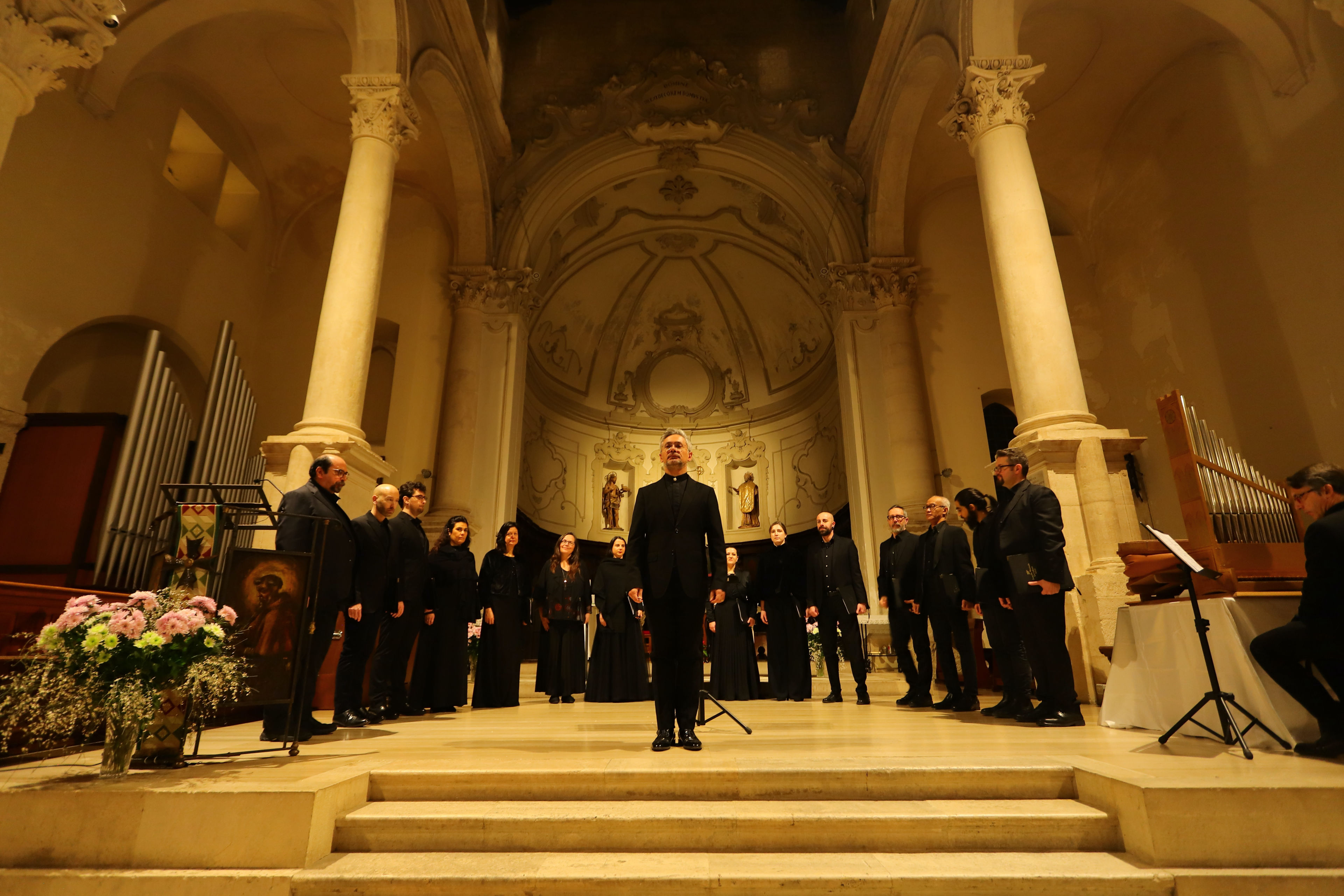

The CAPPELLA MUSICALE CORRADIANA, choir and orchestra, was founded in 2007 and is directed by Antonio Magarelli; it mainly performs the sacred repertoire, with a particular interest in the Renaissance, Baroque and Classical repertoire. The orchestra, composed of professionals in the field of early music, usually plays original instruments with the aim of historically informed performances. The main interest of the Cappella Musicale Corradiana is the rediscovery of the Apulian musical heritage aimed at enhancing the Neapolitan School of Music. It performs concerts all over Europe, as a guest of festivals and music festivals. The Cappella Corradiana was a guest of the Maldon Festival of Arts and the Pontifical Committee for Historical Sciences, giving a concert in Rome in Santa Croce in Gerusalemme for the celebrations of the 500th anniversary of the conclusion of the Lateran Council V. She collaborates with the Orchestra della Magna Grecia, for which she has given monographic concerts on Mozart and Schubert. She also performed a programme on Monteverdi's madrigal production at the National Archaeological Museum in Taranto for the 'MArTA in Musica' festival. He participated in the project to premiere in modern times the Passions of Giovanni Maria Trabaci (1575-1647) by performing the Passion according to Luke and the Passion according to John for the 2021 and 2022 editions of the Duni Festival. The Passion according to John was repeated in 2023 at the Girolamini church in Naples for the review 'Rarità musicali dell'archivio dei Girolamini'. He performed the Miserere a doppio coro by Leonardo Leo (1694-1744) at the Chiesa Madre in San Vito dei Normanni for the 'Barocco Festival Leonardo Leo 2023'. In 2013, he premiered for Digressione Music the Oratorio Passio Domini Nostri Iesu Christi secundum Ioannem (1816) for soloists, choir and orchestra by Vito Antonio Cozzoli (1777-1817), a composer of the Neapolitan school. He also premiered the cantata Inno al Sole for two sopranos and orchestra composed by Giuseppe Millico (1737-1802). Finally, he released an interesting recording work, which brought to light another pearl of the Neapolitan School: the Ufficio della Settimana Santa (Holy Thursday and Good Friday), for three voices and basso continuo, composed by Antonio Pansini (1703-1791) in the first half of the 18th century.